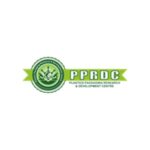Race To Seal Global Plastic Treaty Enters Final Stretch In Geneva

After two years of negotiations, UN diplomats eye August deadline to clinch legally binding deal tackling plastic pollution across lifecycle
As world leaders gather in France for the Third UN Ocean Conference, a quieter but consequential diplomatic push is gaining ground behind the scenes – to finalise a historic global treaty regulating plastics from production to waste.
“There is renewed commitment to conclude the treaty in August,” said Jyoti Mathur-Filipp, Executive Secretary of the Intergovernmental Negotiating Committee (INC), as per the UN News. “This is too urgent an issue to be left for the future.”
The informal meeting, hosted by UN Environment Programme (UNEP) chief Inger Andersen, signalled rising political momentum after years of scientific warnings. It comes ahead of the sixth and final round of negotiations, set to take place in Geneva from 5 August to 14.
Plastic pollution has reached alarming proportions, with waste now found in virtually every ecosystem – and even within the human body in the form of microplastics. UN estimates warn that without urgent action, up to 37 million metric tonne of plastic could enter oceans annually by 2040.
“We are choking with plastic,” said Mathur-Filipp, originally from India. “If we do not do something to tackle plastic pollution, we will not have a single ecosystem left, whether it is terrestrial or marine.”
The economic costs are equally staggering. Between 2016 and 2040, plastic-related damage could cost the global economy an estimated USD 281 trillion, impacting tourism, fisheries, coastal infrastructure, and wetland ecosystems.
The treaty process was kickstarted by the UN Environment Assembly in 2022 and has moved at an unusually rapid pace for multilateral negotiations, with five sessions convened in less than two years. A breakthrough came at the fifth INC session in Busan, South Korea, where countries agreed on a 22-page ‘Chair’s text’ – a draft structure outlining 32 to 33 articles of the future treaty.
“They have started speaking with article numbers for negotiation,” said Mathur-Filipp. “And this is why my hope is that there would be a conclusion.”
The draft treaty is expected to address plastic pollution across the full value chain – including upstream production, midstream consumption, and downstream waste. It blends binding and voluntary provisions, in line with the UN’s original mandate. “It has an objective. It has a preamble,” she noted. “It looks like a treaty.”
The draft also includes provisions on ratification, governance rules, and institutional mechanisms to oversee implementation. If negotiations succeed, the final text could be submitted to a diplomatic conference by late 2025 or early 2026 for formal adoption and ratification by member states.
Plastic pollution is a global threat but not an equal one. Small island developing states (SIDS), in particular, bear the brunt despite contributing the least to the crisis.
“It is a fact that small island developing states are not the ones that are using plastic as much as what’s flowing onto their shores,” Mathur-Filipp pointed out. “They are unfairly impacted.”
Currently, around 18 to 20 per cent of global plastic waste ends up in the ocean – a figure expected to climb unless sweeping global action is taken. With time running out and political attention sharpening, the Geneva session could prove decisive in crafting what may be the world’s first legally binding global agreement to curb plastic pollution at its source.





































































































































































































































































































































































































































































































































































































































































































































































































































































































































































































































































































































































































